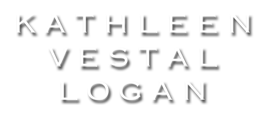I had to admit my mother to a nursing home during a crisis years ago, then was dismayed when they treated her as if she were incompetent. I kept saying, “The disease affects her speech, but she’s fine mentally. Please talk directly to her.” When I looked at her chart, the admitting diagnosis was ‘dementia’. That was my “Aha!” moment on the devastating consequences of labeling people. Once the staff saw dementia, they stopped absorbing information that didn’t fit the diagnosis.
Someone recently called me a “liberal” (with ‘damn’ implied by her tone), and I was surprised. To my chagrin, I didn’t press her on what she meant. Had she asked, I might have described myself as a ‘conservative independent’. I believe in budgets, reducing the national debt, good public schools, going to war only as a last resort, basic health care for all citizens, some restrictions of guns, clean water and air, not despoiling our environment, freedom of religion, a clear process for citizenship, and respect for everyone. She didn’t know any of that, however; labeling me on partial information was a lot quicker.
Unfortunately, labels, as they did with my mother, preclude civil conversations and observation of actual behavior. This morning, a friend said, “Someone just called me a bigot and racist because I’m a conservative Republican. I was hurt.” Bewildered, really, as the other woman didn’t know her, and my friend is anything but a bigot.
We are all responsible for exploring beyond simplistic labels. How? You can ask questions, such as: What does being a conservative Republican mean to you? What’s your stance on the budget debt? Do you believe college education should be free? If so, why? What issues do you most care about? etc. Each one of us is entitled to be recognized as a whole person, not just an incomplete, limiting label. Next time someone labels me, I will say, “Please clarify for me what you mean by that term.” And start a real conversation.
